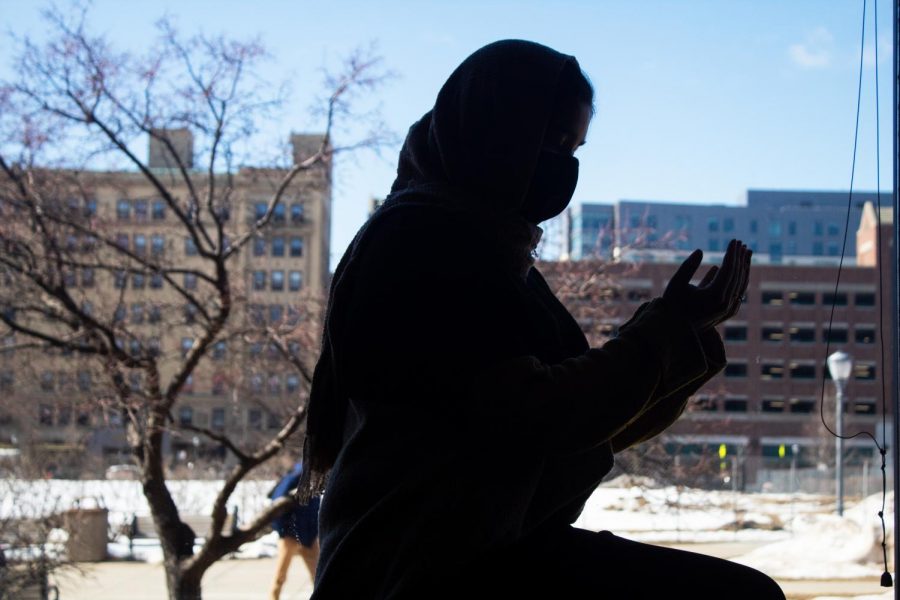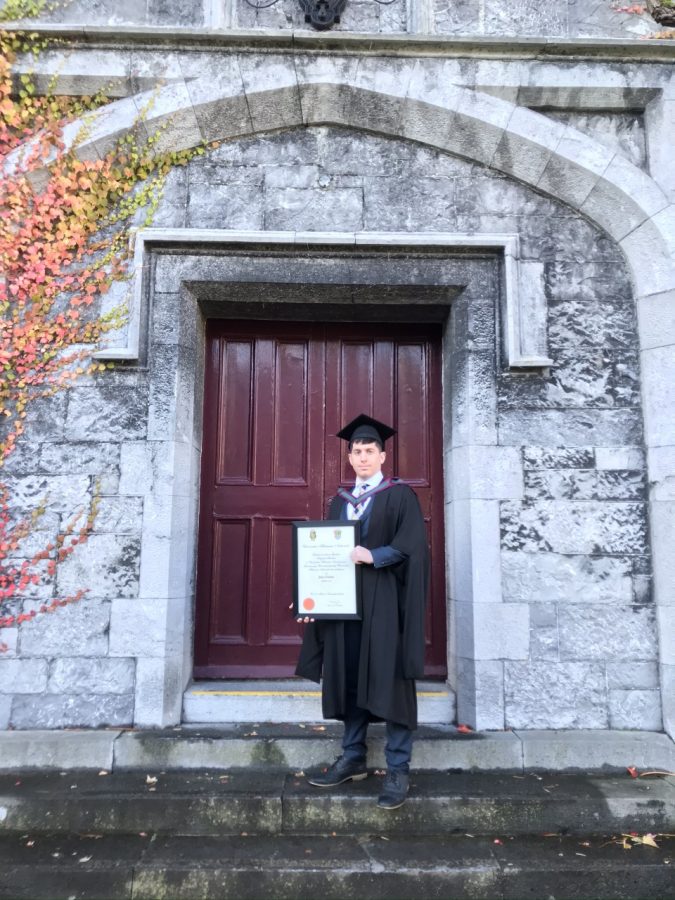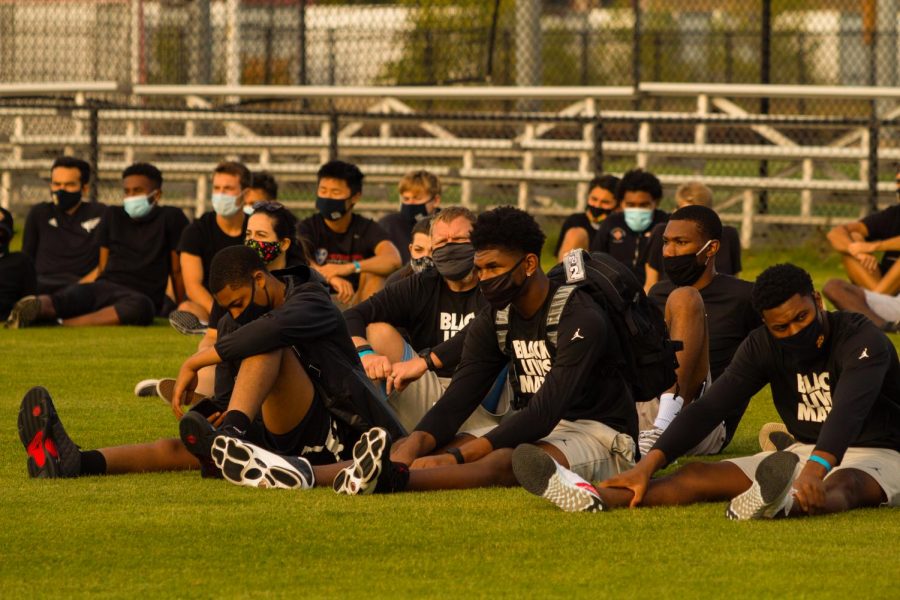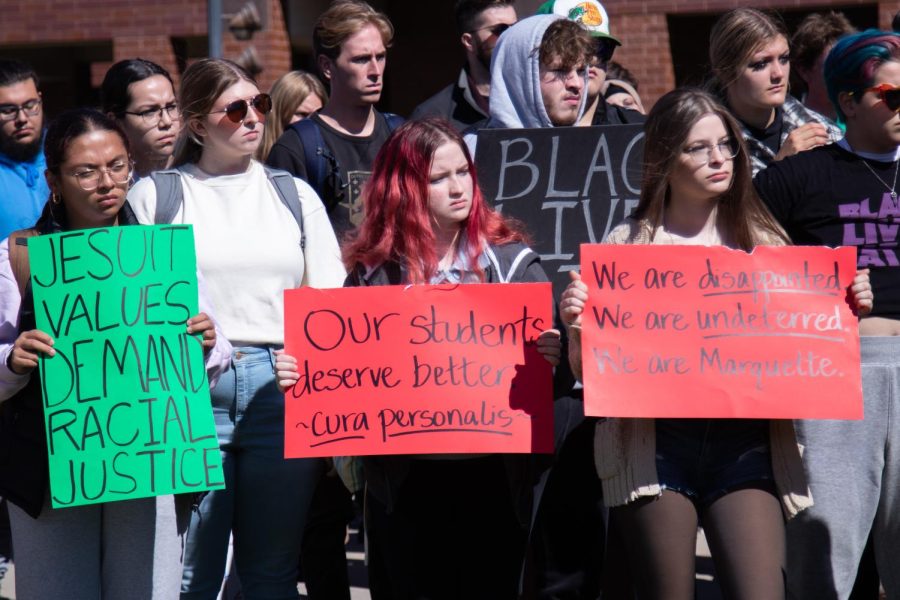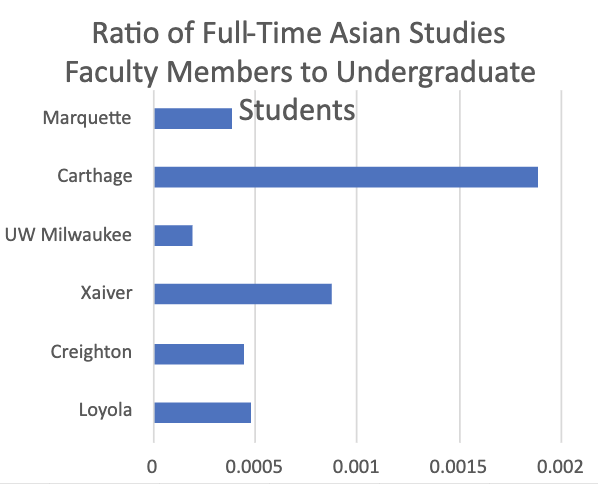
Barrett McCormick, a retired professor for Marquette’s department of political science, said there were two specializing Asia faculty in 1984.
“They had more Asia faculty back then than in 2022,” McCormick said.
Marquette University currently has three professors teaching general Asian studies in its international affairs, political science and history departments. One is Michael Wert, associate professor of history who specializes in Japan. The other two experts specialize in Chinese studies: Daniel Meissner, associate professor teaching Chinese history, and Jen-Li Ko, an assistant professor teaching Chinese.
Meissner, the only China history expert at Marquette, is set to retire after next semester. This lack of diversity and resources could cause gaps in student curriculum.
“As faculty retire, there are fewer options. Asian studies minors will suffer because there are narrower options,” Meissner said. “After years of trying, there seemed to be no support for expanding the program beyond what we put in.”
A failure to expand the program means a more narrow education for students.
In 2019, 18% of the United States total goods imports came from China, totaling over $450 billion. Meanwhile, exports to China supported 1.2 million United States jobs.
The Marquette Wire collected data on the ratio of full-time Asian faculty members to undergraduate students at six schools in the midwest.
Out of the schools that were compared, Marquette University had the fifth lowest ratio percentage of faculty members to students with three full-time faculty members and a student population of 7,660.
“The university is only good without broad horizons. People that want to study beyond Marquette are just going to choose something else,” McCormick said. “We can’t understand America’s economic prospects without knowing those of Asia. China is a huge part of humanities.”
McCormick specialized in international politics of Asian and Chinese media for 35 years at Marquette. He said he developed a passion for learning about China at the young age of 18. As a first-year student at the University of Wisconsin-Madison, he was encouraged to study new subjects that went beyond general education courses.
“I tried all kinds of things. It turned out I was good at Chinese. If the university hadn’t offered that, I wouldn’t have done all this at Marquette,” McCormick said.
Meissner also mentioned there were two people who helped to improve the history programs at Marquette, both of which retired, and nobody stepped up to take their place. Meissner and McCormick suggest this is a result of the administration responding to what parents and students look for in a university.
“There’s some degree of flavor of the month. It’s more to do with university leadership and what they want the leadership to be,” McCormick said. “The university would respond if lots of students did Asia studies.”
Meissner includes that the professors teaching these courses and the individuals working in these departments try their best to keep the program alive and provide as many resources as possible to students.
“It really is a heartbreak to see the things I worked for go away,” McCormick said.
Paula Paliwoda, a senior in the College of Arts & Sciences, said her parents are from Poland, so she spent her childhood fascinated with listening to the news and foreign affairs. Like many other students passionate about expanding their education beyond the Midwestern bubble, Paliwoda said she is disappointed with the lack of resources available to her.
“Without experts in these fields, it’s almost like we’re set up for failure,” Paliwoda said. “International affairs is important to society. It deserves the same amount of funding.”
McCormick said one solution to the lack of resources at an individual level is to speak up.
“Telling people ‘I want this, my education is incomplete,’ is very important,” McCormick said.
Another solution is for more students, parents and administration to see the importance of Asia studies.
“China is a superpower on par with the U.S.,” Meissner said. “More people should know more things about China.”
Paliwoda suggests Marquette advocates more for the international affairs department.
“Marquette doesn’t feel like there’s a sense of urgency,” Paliwoda said.
Heidi Bostic, dean of the College of Arts & Sciences and the College of Education, said she is looking to solve this problem.
“Hiring a faculty expert on China/East Asia is a top priority for the Klingler College of Arts & Sciences,” Bostic said in an email. “The demand is high, and the recruiting pool is small.”
While Bostic said they are still actively recruiting, there has been no job applications put on their website. Since McCormick retired in 2019, no one has filled his position.
“The university needs to provide what students need to know, not what they think students want to know,” McCormick said. “There is a big part of humanities that is almost invisible at Marquette.”
This story was written by Jolan Kruse. She can be reached at [email protected].


